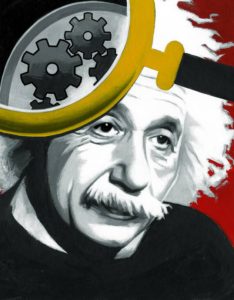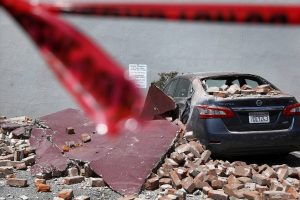
ILLUSTRATION: THOMAS FUCHS
“Genius,” a new National Geographic miniseries on Albert Einstein starring Geoffrey Rush, tries to peel back the great physicist’s eccentric public persona and examine the human being underneath, warts and all. But even if we could discover everything about Einstein’s life and character, would that tell us anything about the nature of genius?
People have been puzzling over the concept for more than 2,000 years, as Darrin M. McMahon points out in his comprehensive history of genius, “Divine Fury.” In classical antiquity, genius wasn’t considered a talent or the result of effort but a divine spirit. The ancient Greeks believed that every individual was born with a daimon, an innate spiritual power bestowed by the gods that guided a person’s actions and ultimately decided his fate. The Romans shared this basic belief in a heavenly spirit that resides in us. Continue reading…






